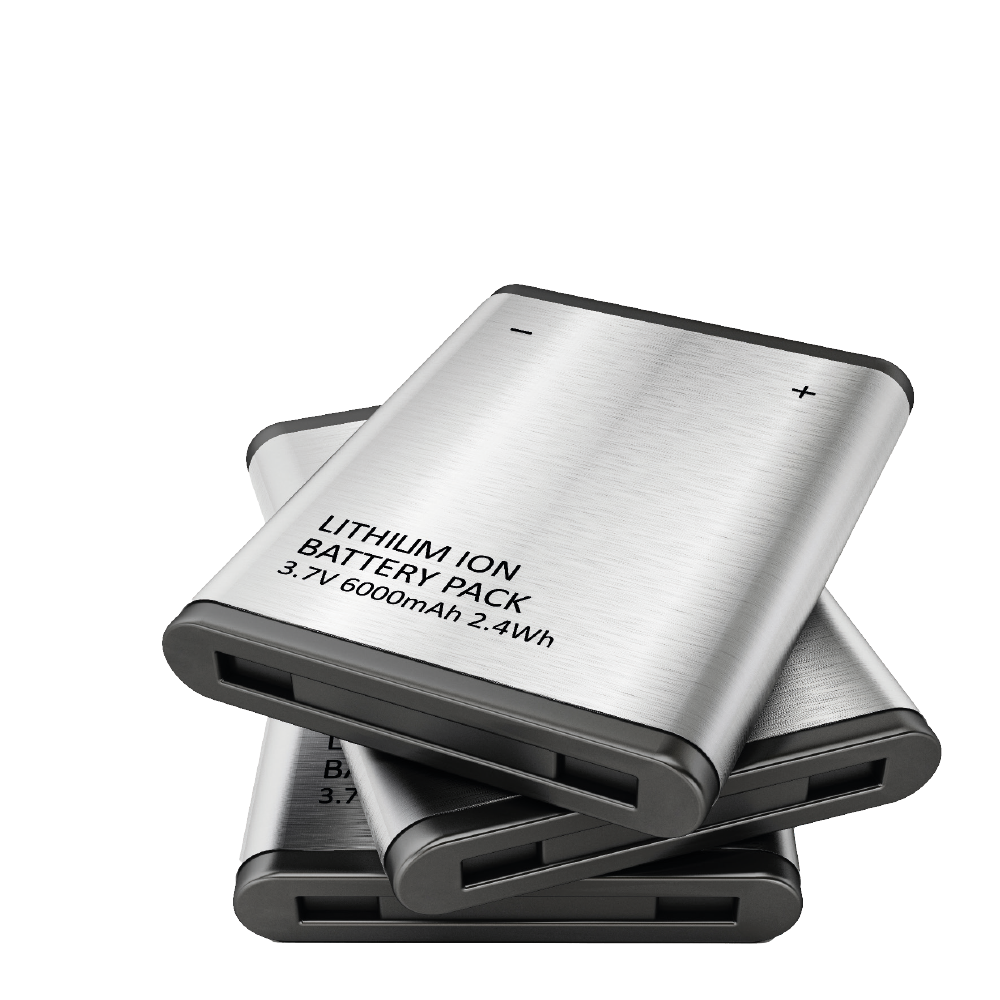The box is heavier than it looks. This chest, which acts as a high-security storage unit for lithium-ion batteries, weighs nine kilos and can hold up to 35 litres. It was REMONDIS’ subsidiary RETRON that developed this box: able to withstand high temperatures, it can protect people and companies from battery fires.
The employees at REMONDIS’ main plant in Lünen, a town in the German region of Westphalia, use the boxes for a number of purposes, such as recycling small electronic appliances. “We don’t know, for example, if a mobile has been dropped and the battery is broken or if the battery in an e-bike is still okay,” explained Daniel Müller, deputy head of the fire brigade at REMONDIS’ Lippe Plant.
If the separator – the component used to separate the cathode from the anode – is damaged then the energy stored in the battery is released uncontrollably. The problem here is that even the experts cannot always tell if a battery is damaged. The process taking place inside the battery cannot be seen from the outside to begin with. The battery slowly heats up, the electrolyte is corroded, more energy is released and then finally the oxygen from the cathode produces a very hot jet of flame or an explosion.
Experts call this process a thermal runaway. “If your mobile catches fire, the best thing to do is to throw it into a bucket of water and leave it there,” Müller recommended. If the battery still contains energy, then the process can start all over again after the fire has been put out. “That means the battery can catch fire again.”
Batteries often end up in the wrong bins.
Chronically low collection rates pose risks in the age of lithium-ion batteries
These risks are well manageable at REMONDIS’ plant in Lünen when the staff recycle e-waste thanks to the RETRON boxes. Mixed fractions of waste, such as commercial waste, are more problematic and these material streams are also sorted and treated in Lünen. Even though a law was introduced in 1998 making it obligatory for batteries to be collected separately, half of all batteries in Germany end up being disposed of via other routes. In this age of lithium-ion batteries, these chronically low collection rates not only mean that the environment is being polluted and raw materials are lost but also that there is a danger to life and limb.
Batteries often end up in the wrong bins, for example in the bins for mixed commercial waste. Processing this mixed waste is a highly dangerous business: for the material to be recycled in the best possible way, it first has to be shredded and then sorted. If a lithium-ion battery ends up in the shredder and gets damaged, this can have devastating consequences.
And this happens more often than many may think. The BDE [Federal Association of the German Waste Management Industry] estimates that there are about 30 fires at recycling businesses across Germany every single day. These are often caused by lithium-ion batteries being thrown into the wrong bin. Most fires are harmless – thank goodness – but firefighters are called out to tackle two such cases every day.
REMONDIS’ fire brigade in Lünen is also in high demand. There are 70 to 80 fire events at REMONDIS’ main plant in Lünen alone each year – once or twice a week, there’s a blaze somewhere on the Lippe Plant. Most of these events are harmless, thanks in part to the prudent fire prevention measures.

There are 70 to 80 fire events at REMONDIS’ main plant in Lünen alone each year.
Technology and training protect the plant and its employees
The fire brigade uses a variety of measures to protect the employees and facilities, including early warning fire detection systems. The building used to store the unsorted commercial waste, for example, is equipped with an elaborate system of thermal imaging cameras and water guns. If one of the thermal imaging cameras picks up a fire source, the system raises the alarm: the automated water gun travels by itself to the fire source and tries to put out the fire with its 2,500 litres of water a minute. In the best case scenario, all the fire brigade needs do is to go and check everything is okay.
“Our goal is to train every employee at REMONDIS’ Lippe Plant to become a fire protection assistant.”
Daniel Müller, Deputy Head of the Lippe Plant’s Fire Brigade
One thing that is important is to have well-trained staff. “Our goal is to train every employee at REMONDIS’ Lippe Plant to become a fire protection assistant.” The staff learn how to handle the fire protection equipment and know exactly what to do in the case of a fire – and when it’s time to retreat to ensure they stay safe.
Protection systems and training are important but they cannot solve the problem. If we are to get to the root of the problem, then the collection rates of batteries in general – and lithium-ion batteries in particular – must be considerably increased. “The problem is that the batteries are not disposed of separately,” Müller concluded. If they are collected separately then the risk these small energy storage systems pose is small – especially if the rechargeable batteries are stored in RETRON boxes.
You can find more articles on batteries here:
Image credits: image 1: Shutterstock: Fast_Cyclone; image 2: Shutterstock: DestinaDesign






